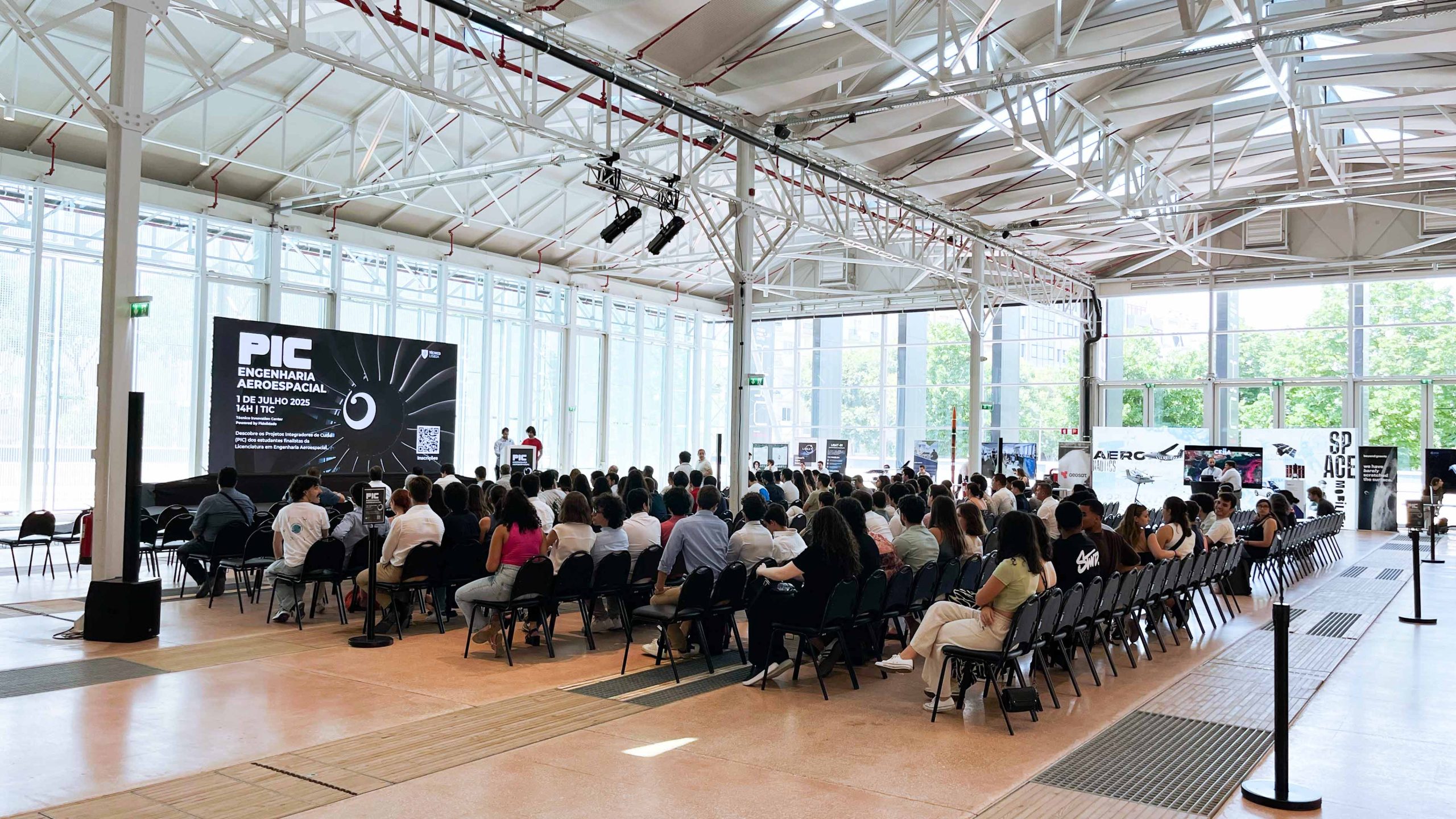Aerospace Engineering students presented projects at Integrative Project symposium
Eighteen teams participated in the final presentations of the curricular unit, showcasing proposals that address the current challenges in the aerospace industry.

The projects developed by undergraduate students in Aerospace Engineering at Técnico, which involved the conceptual development of vehicles such as aircraft, helicopters, drones, launchers and satellites were highlighted during the 1st Cycle Integrative Project (PIC) symposium. On 1 July, the Técnico Innovation Center, powered by Fidelidade, hosted these teams as they presented the projects developed during the semester, designed to promote the integrated application of knowledge gained throughout the course.
The projects spanned various areas of aerospace engineering, drawing inspiration from relevant challenges in the sector and bringing students closer to the industrial context. The proposals included vehicles for medical emergencies, environmental monitoring systems, and cargo transport platforms.
Three teams stood out and were awarded by the jury:
- Best Presentation: Pelicano
- Honourable Mention: FlyCare
- Best Poster: Sky Clean
Afzal Suleman, a professor in the curricular unit, explains that the Integrative Project “promotes not only the application of theoretical concepts taught in other curricular units, but also their integration from a multidisciplinary perspective.” He adds that “students develop essential soft skills, such as teamwork, leadership, and communication abilities,” which are crucial for their professional growth.
Throughout the semester, students were challenged to design “innovative” and functional solutions, encouraged to “think ‘outside the box’ and create concepts that are distinct from what already exists in the market and literature”, says the professor. Given the rapid technological evolution in the aerospace sector, Afzal Suleman stresses the importance of continuously updating the topics covered: “There is an urgent need to align the challenges posed by the teaching staff with society’s current issues regarding aerospace vehicles, particularly in aeronautics and space.”
The session was attended by professors, students, researchers, and guests, who had the opportunity to learn about the teams’ work and discuss the potential of their proposals. The presentation of these projects marked the end of the curricular unit and was part of the regular activities of the Undergraduate Programme in Aerospace Engineering.
